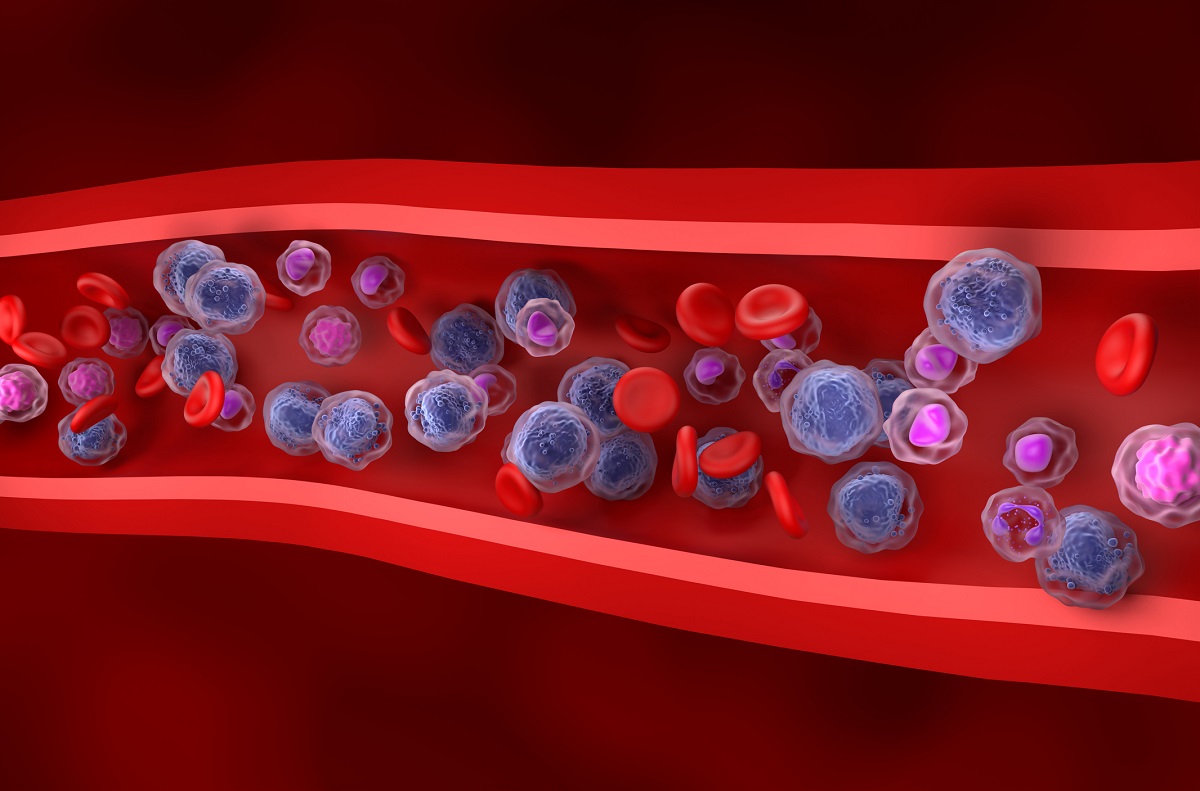KEY TAKEAWAYS
- The study aimed to investigate the role of sphingolipid metabolism in FLT3 TKI resistance in AML.
- SPHK1 inhibition could enhance TKI efficacy, suggesting a promising combination strategy for treating FLT3-mutated AML.
Approximately 25-30% of patients with acute myeloid leukemia (AML) possess FMS-like receptor tyrosine kinase-3 (FLT3) mutations, which are linked to disease progression and poor prognosis. Extended use of FLT3 tyrosine kinase inhibitors (TKIs) often results in limited clinical responses due to various compensatory survival signals.
This highlights the urgent need to understand the mechanisms driving FLT3 TKI resistance. Given that dysregulated sphingolipid metabolism is known to contribute to cancer progression and therapeutic resistance, its impact on TKI sensitivity in FLT3-mutated AML remains unclear.
Ling Jiang and the team aimed to assess the role of sphingolipid metabolism, particularly the enzyme SPHK1, in influencing TKI resistance in FLT3-mutated AML.
Researchers performed an inclusive analysis using lipidomics profiling, RNA-seq, qRT-PCR, and enzyme-linked immunosorbent assays to identify potential drivers of sorafenib resistance. FLT3 signaling was inhibited with sorafenib or quizartinib, and SPHK1 was targeted using an antagonist or through knockdown techniques. Cell growth and apoptosis were evaluated in FLT3-mutated and wild-type AML cell lines using Cell Counting Kit-8, PI staining, and Annexin-V/7AAD assays.
Western blotting and immunofluorescence assays were conducted to investigate the underlying molecular mechanisms through rescue experiments involving SPHK1 overexpression and exogenous S1P, as well as inhibitors of S1P2, β-catenin, PP2A, and GSK3β. Xenograft murine models, patient samples, and publicly available data were analyzed to validate the in vitro findings.
About long-term sorafenib treatment upregulates SPHK1/sphingosine-1-phosphate (S1P) signaling, which positively modulates β-catenin signaling to counteract TKI-mediated suppression of FLT3-mutated AML cells through the S1P2 receptor. Genetic or pharmacological inhibition of SPHK1 significantly enhanced TKI-mediated inhibition of proliferation and induction of apoptosis in FLT3-mutated AML cells in vitro.
SPHK1 knockdown improved sorafenib efficacy and survival in AML-xenografted mice. Mechanistically, targeting the SPHK1/S1P/S1P2 signaling pathway synergizes with FLT3 TKIs to inhibit β-catenin activity by activating the protein phosphatase 2A (PP2A)-glycogen synthase kinase 3β (GSK3β) pathway.
The study concluded that the sphingolipid metabolic enzyme SPHK1 plays a crucial role in regulating TKI sensitivity and that combining SPHK1 inhibition with TKIs could be a promising strategy for treating FLT3-mutated AML.
This work was supported by the National Natural Science Foundation of China (82170165) and GuangDong Basic and Applied Basic Research Foundation (2023A1515012401 and 2021A1515011437).
Source: https://pubmed.ncbi.nlm.nih.gov/39113090/
Jiang L, Zhao Y, Liu F, et al. (2024). “Concomitant targeting of FLT3 and SPHK1 exerts synergistic cytotoxicity in FLT3-ITD+ acute myeloid leukemia by inhibiting β-catenin activity via the PP2A-GSK3β axis.” Cell Commun Signal. 2024 Aug 7;22(1):391. doi: 10.1186/s12964-024-01774-9. PMID: 39113090; PMCID: PMC11304842.



